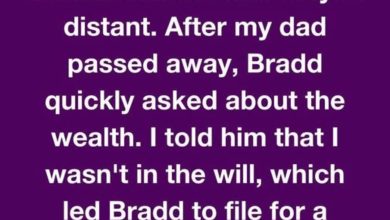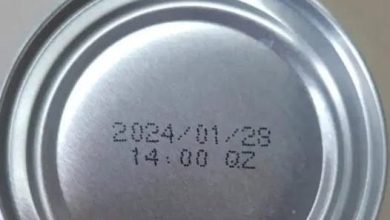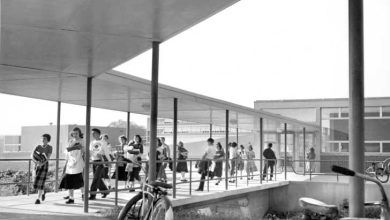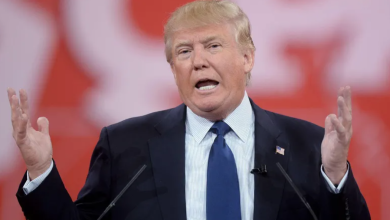Poor Builder’s Father Gives Him an Envelope Before Passing Away with Instructions to Open It 10 Years Later – He Finally Does
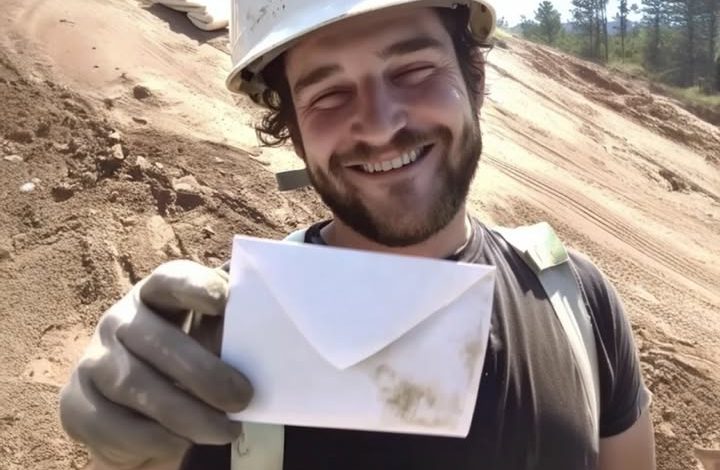
The relentless Texas sun beat down on my back as I wrestled with a stubborn stack of bricks. Sweat stung my eyes, and my muscles screamed in protest. Six years into my construction career, I was no stranger to grueling labor. Long hours, calloused hands, and a meager paycheck were the constants of my life. Yet, despite the hardships, I found a strange sense of satisfaction in the physicality of it all.
After all, what else was there for a kid like me? No college degree, no family fortune, just this – the honest sweat of my brow. It wasn’t glamorous, but it was mine.
That day, however, felt different. A familiar weight nestled in my pocket, a constant reminder of a promise made a decade ago.
I gingerly touched the worn envelope, the edges smooth from countless hours of carrying it. My father’s voice echoed in the heat haze, “Don’t open it for ten years. Exactly ten years. Promise me!”
And I had.
The memory of his gaunt face, etched with the pain of a terminal illness, still haunted me. My father, a man of few words and even fewer smiles, had been the only constant in my turbulent childhood. My mother had vanished long before I could form a coherent memory of her, leaving me adrift in a sea of loneliness.
He was a gruff man, my father, a construction worker himself. He came home each evening, his body aching, his hands perpetually stained with the grime of the trade. But behind that gruff exterior, a fierce love for his son burned bright.
The night he succumbed to his illness, I sat vigil beside his hospital bed, my hand clasped tightly in his. The sterile scent of the hospital filled the air, a stark contrast to the earthy smells of his workshop.
“Promise me you’ll be strong,” he rasped, his voice a mere whisper.
“I promise, Dad,” I choked out, tears welling up in my eyes.
“Promise me one more thing,” he insisted, his gaze drifting towards a small wooden table beside the bed.
On the table, nestled amongst a clutter of medical equipment, lay a simple, unassuming envelope.
“That’s for you,” he wheezed. “But don’t open it for ten years. Exactly ten years.”
Confusion clouded my young mind. “Why?”
His grip tightened, a surprising strength emanating from his weakened frame. “Promise me.”
Hesitation warred with the deep love I felt for him. Finally, I yielded, “I promise.”
His grip relaxed, his breathing shallowing. Words caught in my throat, but I knew better than to interrupt this poignant farewell.
“I love you, Dad,” I whispered, leaning closer.
His hand, frail as a bird’s wing, patted my shoulder. “I love you too, son.”
And then, he was gone.
The years that followed were a relentless struggle. At fifteen, I was thrust into the cold, impersonal embrace of a state-run group home. Surrounded by troubled youths, I felt utterly alone. While they rebelled, I retreated, clinging to the memory of my father’s words and the promise I had made.
At eighteen, I left the group home with nothing but the clothes on my back and the enigmatic envelope tucked away in my pocket. No scholarships, no inheritance, no safety net – only the calloused hands of a young man eager to prove himself.
Construction work became my refuge. The physicality of the job, the demand for sheer grit and determination, mirrored the struggles of my own life. I worked tirelessly, every muscle aching, every penny earned a testament to my resolve. There were no distractions, no frivolous indulgences. Only work, sleep, and the ever-present weight of the envelope in my pocket.
Often, late at night, I would pull it out, tracing the edges with my fingertips. What secrets did it hold? A letter? A cryptic message? Perhaps a final, poignant farewell from my father.
But I never opened it.
A promise is a promise.
The tenth anniversary of his passing dawned, a poignant reminder of the life that had slipped away. As I prepared for work, the envelope in my pocket felt heavier than usual, a tangible reminder of the weight of expectation.
The day dragged on, each hour an eternity. My mind, however, was far from the construction site, preoccupied with the impending encounter.
Finally, the workday ended, and I hurried home, my heart pounding a frantic rhythm against my ribs.
Inside my modest apartment, I sat at the worn wooden table, the envelope lying before me like a sacred relic. My fingers hovered over the seal, hesitation battling with a burgeoning sense of anticipation.
What if it was nothing? What if I had built this moment up in my head, only to be met with disappointment?
I pushed the doubts aside. A promise is a promise.
With trembling hands, I tore open the envelope. Inside, a single, crisp piece of paper held a message scrawled in my father’s familiar handwriting:
“Meet my lawyer. —Dad”
That was it? No heartfelt letter, no words of wisdom, just a cryptic instruction? A wry smile touched my lips. “You’re still testing me, aren’t you, Dad?”
I grabbed my coat and headed out, the weight of the unknown pressing down on me.
The lawyer’s office was an imposing edifice, a world away from the grime and grit of my daily existence. I felt a pang of self-consciousness in my worn work clothes, a stark contrast to the impeccably dressed clientele that frequented the lobby.
“I’m here to see Mr. Calloway,” I announced to the receptionist, clutching the slip of paper in my hand.
She glanced up, her eyes narrowing slightly. “Do you have an appointment?”
“I… I think so?” I stammered, thrusting the paper towards her. “My father told me to come here.”
Her eyes widened. “You must be Eugene.”
“Yes,” I confirmed, my voice a mere whisper.
She nodded and disappeared into a back room, returning moments later with a distinguished-looking gentleman. Tall, impeccably dressed, and with a gaze that seemed to pierce through my very soul, he exuded an aura of authority.
“I’ve been expecting you,” he said, extending a firm handshake. “Come in, son. We have much to discuss.”
As I sat across from him, his imposing desk a formidable barrier between us, I felt a strange sense of calm descend. My father, even in death, continued to guide me, to challenge me.
“Your father came to me before he passed,” Mr. Calloway began, his voice a low rumble. “He had a very specific plan for you, a… test, of sorts.”
My heart pounded against my ribs. “What kind of test?”
He slid a leather-bound folder across the desk. “He left you a substantial sum of money, a savings account he diligently built up over the years.”
I opened the folder, my breath catching in my throat.
$400,000.
The figures swam before my eyes, a dizzying display of wealth I had never even dreamed of. “This… this is mine?”
Mr. Calloway nodded. “On one condition. Your father told me that you could only receive this money if you worked hard for ten years. If you became a man who understood the value of it.”
I exhaled, my chest tight with emotions I didn’t know how to name. My father had been gone for ten years, but in this moment, I could hear his voice clear as day.
I clenched the letter in my fist and smiled. “Thanks, Dad.”
This wasn’t just an inheritance.
It was a lesson. And I would honor it.

